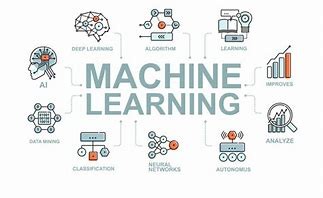What Companies Look For When They Explore Quantum Machine Learning
Unlocking the Potential of Quantum Machine Learning (QML)
Quantum computing is on track to revolutionize industries through advancements in optimization, simulation, and machine learning (ML). Among these, quantum machine learning (QML) is particularly promising for addressing challenges that classical ML struggles with, such as handling complex data relationships and analyzing large-scale datasets. While these benefits remain largely theoretical due to current hardware limitations, ongoing advancements suggest a transformative future.
Identifying Areas for Quantum Advantage
Companies exploring QML today are driven by two primary motivations:
Solving pressing challenges:
For instance, HSBC is investigating QML for improving fraud detection and risk management, aiming to enhance accuracy and efficiency in financial services.
Future-proofing for quantum advancements:
With quantum technology rapidly evolving, businesses are keen to establish familiarity with QML now to maintain a competitive edge. Early adopters, much like the pioneers of AI, gain the advantage of identifying optimal workflows for quantum applications and integrating them into their operations before competitors can catch up.
How Companies Approach QML
Most businesses begin their QML journey modestly, running experiments on simulators or hybrid quantum-classical platforms. These initial trials allow organizations to evaluate feasibility without significant financial investment.
- Goldman Sachs, for example, leverages hybrid platforms to explore applications like pricing complex financial instruments.
Promising Use Cases
QML shows significant potential in two key areas:
1. Classification Tasks
Tasks like fraud detection and image recognition are fundamental across industries. Quantum algorithms can uncover intricate data correlations, enhancing accuracy and speed compared to classical models.
- Airbus is researching QML for aerodynamic modeling and materials optimization in aircraft design.
- Financial institutions seek quantum-enhanced tools to improve fraud detection systems, capturing subtler data patterns.
2. Predictive Analytics
Companies across sectors benefit from more precise forecasting.
- Energy firms optimize grid management by analyzing consumption patterns.
- Real estate businesses predict home prices more accurately, making informed investment decisions.
- For example, Moody’s has partnered with QML developers to predict the severity of tropical cyclones, improving disaster response planning.
Integrating Quantum and Classical Computing
Since current quantum hardware is limited, classical computing plays a vital role in early-stage QML workflows:
Data Preprocessing:
Classical systems prepare and filter data, ensuring quantum systems handle only the most relevant information. This reduces the number of qubits needed and simplifies experiments.
Data Compression:
Classical ML techniques compress large datasets, maximizing the utility of limited qubit resources.
- Honda Research Institute, for example, uses this approach in image analysis.
Training Support:
Classical systems often assist in training quantum models, improving the efficiency of quantum workloads.
Expanding Data Sets with QML
QML can also enhance small datasets by identifying correlations or simulating expansions.
- Amgen, a pharmaceutical company, uses QML to analyze clinical trial data, addressing challenges associated with early-phase trials and limited data availability.
Building the Ideal QML Team
A successful QML initiative requires cross-functional expertise, combining quantum specialists with domain experts.
- In pharmaceuticals, quantum physicists should collaborate with chemists or pharmacologists to align technical capabilities with research goals.
- Finance teams benefit from blending quantum experts with risk analysts to optimize market models.
This interdisciplinary approach ensures QML projects focus on delivering tangible business value.
Starting QML Exploration: A Roadmap
Here are steps companies can take to initiate their QML journey:
Identify high-impact use cases:
Focus on areas where QML has the most promise, such as classification and prediction, even if full quantum advantage is years away.
Leverage hybrid workflows:
Combine classical and quantum methods to overcome current hardware limitations, with classical systems handling data-heavy preprocessing.
Experiment with simulators:
Use quantum simulators to test concepts affordably and gain foundational knowledge before transitioning to quantum hardware.
Build a multidisciplinary team:
Ensure collaboration between quantum experts and domain specialists to align efforts with business objectives.
The Future of QML
As QML evolves, its potential applications are expected to expand across industries, driving innovation in fields as diverse as healthcare, finance, energy, and aerospace. Companies investing in QML today are not only solving immediate challenges but also positioning themselves as leaders in the quantum era. By adopting a strategic, forward-looking approach, businesses can unlock the transformative power of QML while navigating its complexities.








